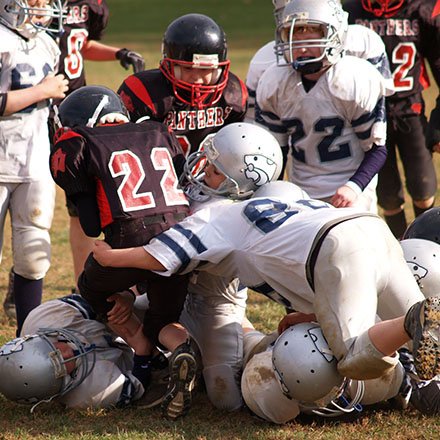Background Checks Are a Buyer-Beware Proposition

By Trish Sylvia, Guest Blogger

Trish Sylvia
Often, the nature of how the conversation changes over time is indicative of whether or not progress is being made. As co-founder of the National Center for Safety Initiatives (NCSI), I have experienced this firsthand. In the early days of our business fifteen years ago, important conversations on difficult topics, like child sexual abuse, were not the norm. I remember back to the implementation of one of our very first national background screening programs.
The room was packed and the mood was combative. I stood facing the crowd, explaining how mandatory background screenings were going to be implemented within their organization, which happens to be one of the nation’s largest non-profit youth sports organizations. I shared statistics about the prevalence of child sexual abuse and did my best to both educate and compel the group to action.
The room was so full, people were spilling out the door, and they were not happy. As soon as my presentation started, I could feel their resistance and as it progressed, I knew I was in for trouble. When we reached the Q&A, people started yelling out, saying things like, “Why do we have to do this?” and, “This is going to cost money. How are we supposed to pay for this?” and, of course, “This won’t happen to us; we know everybody.” Just as I was feeling like this might get a little out of hand, a woman seated near the front stood up and addressed the crowd. It was a moment I will never forget.
With tears running down her face and in an unexpectedly strong voice, she said, ‘Everyone stop! We need to listen. This happened to me. My coach hurt me.’ She paused for a moment (I learned later that she had never said that out loud before that moment). As her tears continued to flow, she said, ‘If you don’t think this is important enough to implement, then we shouldn’t be here as an organization.’ Her words silenced the room. There wasn’t another ounce of resistance.
Even all these years later, it is stories like hers that inspire me and make me relentless in our pursuit of increased safety and eradication of harm in organizations. Whether we realize it or not, we all know people who have been abused. National statistics reveal that one out of every 10 children under the age of 18 will experience some form of abuse. The people who inflict that abuse sometimes are the same ones who sign up to become coaches, team managers and administrators, or volunteer to serve other prominent roles, in youth sports organizations. We have to do better.
Background screening is one important tool in our work to do better, and to keep our kids safer. NCSI has performed thousands of criminal background checks, and those checks have produced reports on convictions for crimes as serious as homicide, kidnapping, rape and attempted rape, manslaughter, lewd acts on a child, armed robbery, unlawful sexual intercourse with a minor, sodomy, murder, mayhem, manufacture/distribution of controlled substances, embezzlement, forgery, assault with a deadly weapon and battery.
Those results came back on individuals who willingly, and brazenly, submitted to a background screening with the intention of working with youth or other vulnerable populations. The numbers show that this can happen and that it is real to all of us.
From the beginning NCSI has been committed to providing high quality background screens, helping clients fulfill their commitment to creating and maintaining cultures of zero-opportunity, zero-tolerance within their organizations. Over the years, we have come to be the trusted provider of screening services to many national sports organizations. In 2017, NCSI became part of the SportsEngine family of businesses, further strengthening our ability to protect our country’s young athletes and vulnerable populations.
So, you might ask, has the conversation changed from 15 years ago? My answer is, yes. My story tells of an organization whose people asked, “Why do we have to do this?” Today, more often, I am asked, “How do we best do this?” That’s a seismic shift.
One caution I always give in response to this question, is to beware of “bargain-basement background screenings” that can cost as little as $5. As with any product, budget background checks are a buyer-beware proposition. Unfortunately, the name background check is applied to a pretty wide realm of methodologies. One of the common myths is that a background check is a background check. We know better. And every organization should clearly know what they are getting and, maybe more importantly, what they’re not getting. It’s often true that you get what you pay for, and when it comes to screening, it’s worth it to really understand this.
There are some key questions to ask when choosing a background screening provider:
▪ Do they use multi-jurisdictional databases including national, state, county and sex offender registries in combination with local (county or state) searches?
▪ How do they verify the applicant’s identity and the reliability of the information being reported?
▪ How frequently are databases updated and what is included in the search?
▪ Are they FCRA compliant and do they assist with these requirements?
▪ What type of customer support do they provide?
I’m proud of the progress that’s been made over the years and of the commitments that continue to be made, but there is still much to be done. Until every child in every organization is truly safe, we must continue this conversation and do everything in our power to keep moving forward. Protecting our kids is a responsibility we all share together.
For more information about background screening services for your youth sports organization please visit: https://ncys.org/safety/national-center-for-safety-initiatives/
-Trish Sylvia is the Founder and CEO, National Center for Safety Initiatives




